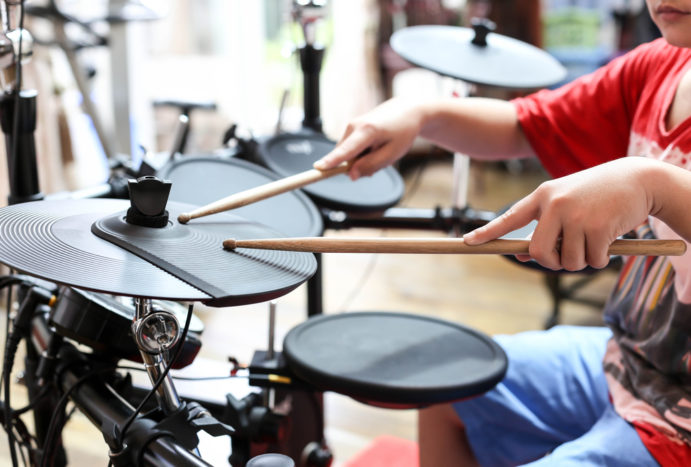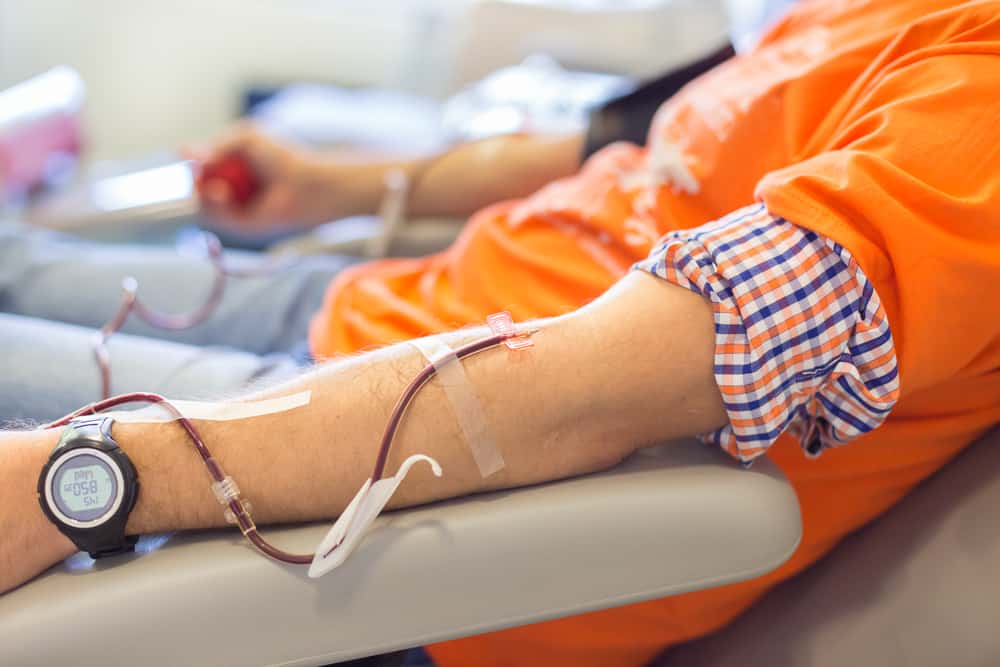Contents:
- Medical Video: 5 Habits That May Reduce Your Risk for Developing Alzheimer's
- Dementia is a disease of the elderly
- Various daily activities that can reduce the risk of dementia
- 1. Read a book
- 2. Join the course
- 3. Chat
- 4. Dancing
- 5. Gardening
Medical Video: 5 Habits That May Reduce Your Risk for Developing Alzheimer's
Dementia is a group of symptoms that arise as a result of decreased brain function with age. Symptoms of dementia are difficulty remembering and thinking, so that it is better known as senile or elderly disease. In severe cases, people with this condition can experience hallucinations. That is why the quality of life of people with dementia is greatly reduced. In fact, reducing the risk of dementia can be done from a young age with various easy things. Some of them may even be your hobby from childhood. Come on, find out more in this article!
Dementia is a disease of the elderly
The most important risk factor for dementia is aging. Based on the results of the Inter-Census Population Survey released by BPS, Indonesia's population over the age of 60 reached 21.4 million people until 2015.
The age range of 60 years and above is the group most vulnerable to dementia. The older you age, the higher the risk for dementia. Even so, symptoms of dementia can also begin to appear as soon as at the age of 40 years.
Various daily activities that can reduce the risk of dementia
Dementia not only causes a person to be senile and has difficulty thinking, but also has difficulty managing emotions. Dementia also makes it difficult for sufferers to speak and move smoothly.
Actually, the risk of dementia can be slowed or even prevented altogether by maintaining a healthy diet and regular exercise for the brain. In addition, some activities that you do everyday without realizing it also help maintain brain health so that it reduces the risk of dementia. What are they?
1. Read a book
Nearly 90% of Indonesians do not like to read books. This is of course very unfortunate because the benefits of reading a book are not only helping to broaden horizons and build creativity.
Book reading hobbies are tantamount to training concentration skills and the brain's focus to complete a task. Reading also trains you to sharpen brain power to absorb, process, remember, and store new information. Therefore, people who are diligent in reading are known to have a far lower risk of various types of brain diseases, such as dementia and Alzheimer's.
The above theory is proven by a study from Hong Kong, quoted from the Medical Daily. After observing more than 1,500 elderly people over 65 years who were free of dementia, researchers found that they had loved reading since they were young.
Come on, read the book!
2. Join the course
The older you are, the more difficult it is to learn new things. Naturally, but don't make this a reason to give up quickly. Learning something new at a young age can be a challenge for your brain.
A 2014 study compared adults who studied photography as a new hobby with adults who only actively exercised. As a result, people who study photography experience a higher increase in memory than people who like sports.
But that does not mean you have to take photography courses, you know, to reduce the risk of dementia. If you continue to discourage you from learning foreign languages, music lessons, or even take a cooking course for fear of failure, don't hesitate to start!
3. Chat
Who, who doesn't like to chat? Now when you interact with other people, the brain works more actively to determine how you should behave, respond, express opinions, and so on.
Meanwhile, the brain also keeps recording all events and conversations that occur. This process even continues when you are alone or sleeping at night. The part of the brain responsible for this is the medial prefrontal cortex and temporoparietal junction. Both areas of the brain play an important role in processing information, improving memory, and carrying out cognitive functions.
In addition, socializing with others can be a way to reduce stress that can have a negative impact on brain health. In fact, opening a small talk with the person next to you while waiting for a public bus to come can make your brain healthy.
4. Dancing
Dancing is one of the physical activities that can train the flexibility of the body while nourishing the brain. When dancing, the brain regulates body movements to follow the beat. In addition, the brain also works to memorize movements and process what movements to do next. All these activities are regulated by a part of the brain called the basal ganglia.
According to a study in The New England Journal of Medicine, dancing can improve memory and prevent you from dementia as you get older. Aerobic exercise such as dancing can restore lost hippocampal volume. The hippocampus is the part of the brain that controls memory storage. The hippocampus will naturally shrink when you reach old age, which often causes memory and senility disorders.
5. Gardening
In addition to making your home yard more beautiful, gardening can actually make your heart happy and has been proven by so many medical studies, you know!
Research published in the Journal of Alzheimer's Disease reports that gardening can protect brain cognitive functions, increase brain volume, and reduce the risk of Alzheimer's by 50 percent. Another study published in 2006 reported that gardening can reduce the risk of dementia by 36 percent after observing 2,000 elderly people who like gardening for 16 years.
In addition, gardening can also reduce the risk of heart disease.

















